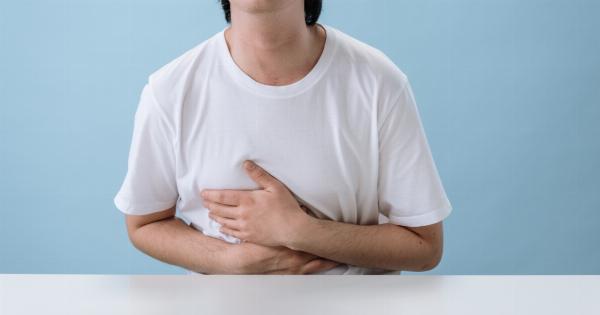Menopause is something many women associate with aging. However, this natural biological process is not always restricted to later stages of life. In fact, many women can go through menopause in their twenties or thirties.
What is Young Menopause?
Young menopause, also known as premature or early menopause, is when a woman’s ovaries cease producing eggs and stop producing the hormones estrogen and progesterone before the age of 40.
It can happen naturally or be induced, with symptoms being the same as regular menopause.
Why Does It Happen?
There is still much to learn about young menopause, but some of the most common reasons for its occurrence include:.
Genetic Predisposition
Some women may be predisposed to early menopause, as it can run in families.
A study published in the American Journal of Epidemiology showed that women who have a first-degree relative (such as a mother or sister) who went through early menopause are twice as likely to experience it themselves.
Surgical Menopause
Women who have undergone a hysterectomy or oophorectomy (removal of one or both ovaries) may experience early menopause. This is because the ovaries are responsible for producing hormones, and without them, hormonal levels can plummet.
Autoimmune Disorders
Some autoimmune diseases, such as lupus or thyroid disorders, can damage the ovaries and cause an early onset of menopause.
Cancer Treatment
Radiation or chemotherapy treatments for cancer can damage the ovaries and also lead to early onset menopause. The likelihood of this occurring depends on the type of treatment and the individual patient’s body.
What are the Symptoms of Young Menopause?
Young menopause symptoms mimic those of menopause at any age – hot flashes, mood swings, depression, insomnia, and fatigue. However, younger women may also experience:.
- Vaginal dryness
- Decreased sex drive
- Diminished fertility or infertility
- Incontinence or urinary tract problems
- Changes in breast size and shape
- Bone density loss, which can lead to osteoporosis
How is Young Menopause Diagnosed?
If a woman is experiencing symptoms of menopause before 40, a doctor will likely run some tests to determine if young menopause is the cause. These tests can include:.
- Blood tests to check hormone levels
- An ultrasound or MRI to check the ovaries
- A bone density screening to determine bone health
- An FSH (follicle-stimulating hormone) test to check levels of this hormone, as it is typically higher in women experiencing menopause.
What are the Treatment Options for Young Menopause?
While there is no cure for menopause, there are treatments and lifestyle changes that can help manage symptoms. For young menopause, these treatments can include:.
- Hormone Replacement Therapy (HRT) – This involves using synthetic hormones to restore estrogen and progesterone levels. It can help to ease hot flashes, vaginal dryness, and other symptoms.
- Medications – Antidepressants and other drugs can be prescribed to help alleviate symptoms such as mood swings and fatigue.
- Healthy Lifestyle Changes – Eating a balanced diet, engaging in regular exercise, and reducing stress can help to manage symptoms and prevent long-term health complications such as osteoporosis.
The Emotional Impact of Young Menopause
Being diagnosed with young menopause can be a huge shock for many women, as they are typically not prepared for such a life-changing event at such a young age. It can be difficult to process and may lead to feelings of depression, anxiety, and sadness.
It can also be challenging to cope when friends, family members, and healthcare professionals are not familiar with menopause at a younger age. Support groups and counseling can be incredibly helpful for women who are struggling to navigate the emotional impact of early menopause.
Final Thoughts
Young menopause can be a challenging experience for women to go through emotionally and physically. However, with the proper diagnosis and treatment, many women are able to move through this phase of life.
While it may be a difficult journey, it is essential to remember that there is hope, and with the right treatment and support, many women go on to live healthy, fulfilling lives.

























